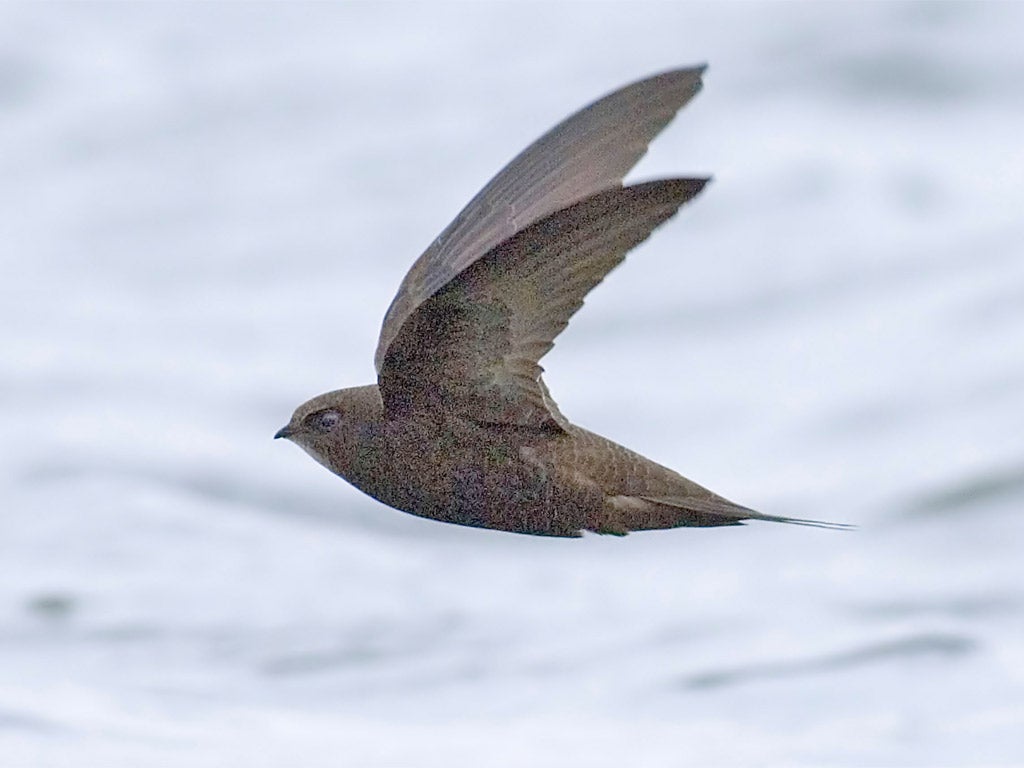Nature Studies by Michael McCarthy: Rain stopped play - why birds aren't breeding in the wet
There are reports of problems with tits and chats and pipits and larks

Some periods of the year are not separated out in the calendar, yet have a very real identity in the natural world, and one such is April, May and June, taken together. What is it? Not spring, for that (at least in Met Office parlance) is March, April and May. It's late-spring-and-early-summer to us, a time neither here nor there, but to birds it forms something distinct: the breeding season.
You may have read earlier this week that we have just squelched through the wettest-ever June, to add to the wettest-ever April we experienced two months earlier; and if you read on, you will have noted that we have also had the wettest April, May and June, taken together as a three-month period, in the whole of the UK rainfall record, which goes back to 1910.
June in addition was very dull – the second dullest ever – and very cold into the bargain; in fact, the last three months have been a truly lousy time for us – remember the rain lashing down on Diamond Jubilee Sunday? But for birds, it has been nothing short of catastrophic.
Across much of the country the 2012 breeding season has just been rained off, like a cricket match is rained off, except that a cricket match is one day and the breeding season is 90. Reports are starting to come in now of breeding failures in everything from swifts to barn owls, from reed warblers to kestrels, and Dr Dave Leech, the head of the nest records monitoring scheme for the British Trust for Ornithology, and the man who probably knows more about it than anybody else, comments: "This has been the worst breeding season I have ever experienced in my life."
Birds' attempts at raising young are compromised by persistent rain in several ways, perhaps most severely by the disappearance of flying insects, on which some specialise, such as swallows, house martins and swifts. Some migrants, like the spotted flycatcher and the nightjar, are dependent on catching larger insects in flight such as butterflies and moths, so they not only have specially adapted gapes, or mouth openings – the spotted flycatcher's head looks too big for its body because of it – but they delay their arrival in Britain for as long as possible, right till the end of May when they can be confident there will be such insects on the wing.
Butterflies and moths are having a calamitous year, but spotted flycatchers have become rare now and nightjars are hard to observe, so we don't know yet how they have fared in 2012; but it is already clear that with swifts, for example, there have been major problems. According to the RSPB, adults have been kicking eggs out of the nest since food has been too short to brood any chicks (a recognised behaviour); birds have been found on the ground in an exhausted state and in some places are missing entirely, although even in these cases, the RSPB would like people taking part in its swifts survey to report the absences.
Dr Leech is getting reports of problems with tits and chats and pipits and larks, with reed buntings and with raptors, and he is watching at first hand the devastation of a reed warbler colony he studies in Norfolk. "It's just a never ending procession of nests failing, especially from the wind, and then being rebuilt," he said. "There are birds on their fourth breeding attempt which still haven't produced any chicks."
Reed warblers are one of the principal host species for cuckoos and he has found two dead cuckoo chicks in reed warbler nests which were blown down. "It's just constant," he said. "It's been a very depressing year."
Indy's in Italy, but it's a long way to the Congo
The dead cuckoo chicks that Dr Leech found were, of course, being looked after by their reed warbler foster parents, the cuckoo parents themselves having done their duty, as they might see it, of depositing a fertilised cuckoo egg in somebody else's nest. In fact, many if not most British cuckoos have now left on their journey back to their African wintering grounds, and that includes Indy, the Independent's adopted cuckoo, which is one of 13 being satellite-tracked back to Africa by the British Trust for Ornithology.
After passing last week through Champagne and Burgundy as he headed southwards through France, Indy is now in Northern Italy, in the Po valley near Alessandria. The travels of the remaining BTO birds make for a remarkable map. Two of the Scottish cuckoos remain in the UK, but the remaining 10 are now scattered right across Europe, with one of them, David, a bird caught at the same time and in the same place as Indy – near Tregaron in mid-Wales on 30 May – now in Montenegro. Other birds are in Germany, the Czech Republic, Belgium, Switzerland, Italy, France and the Franco-Spanish border. A lot of routes to go to the Congo.
Subscribe to Independent Premium to bookmark this article
Want to bookmark your favourite articles and stories to read or reference later? Start your Independent Premium subscription today.

Join our commenting forum
Join thought-provoking conversations, follow other Independent readers and see their replies